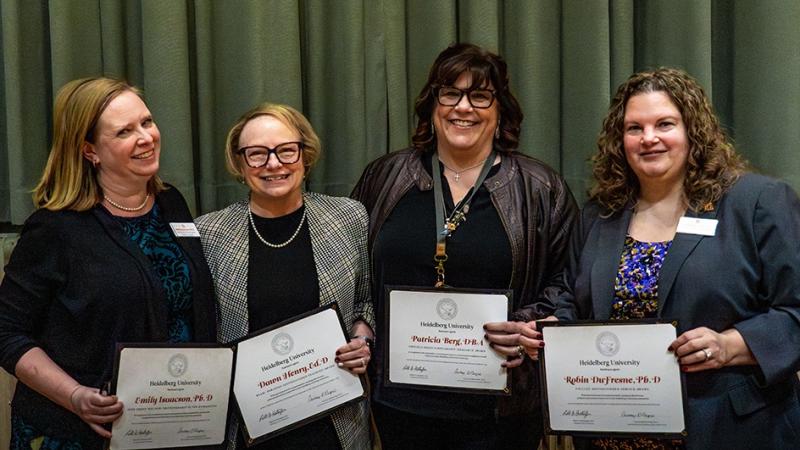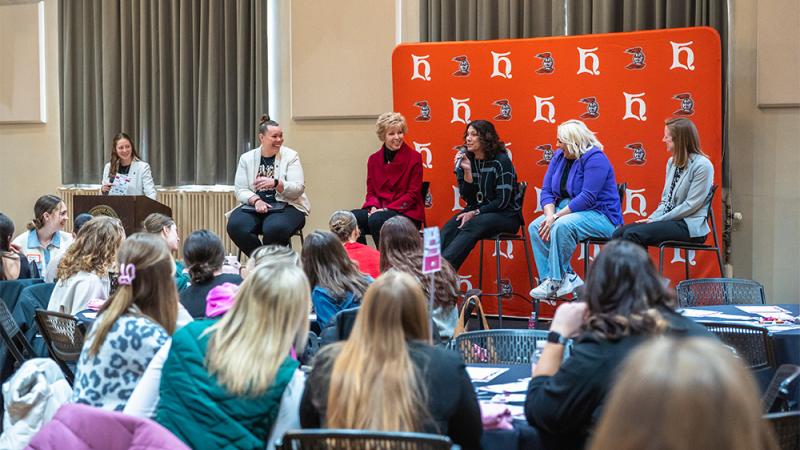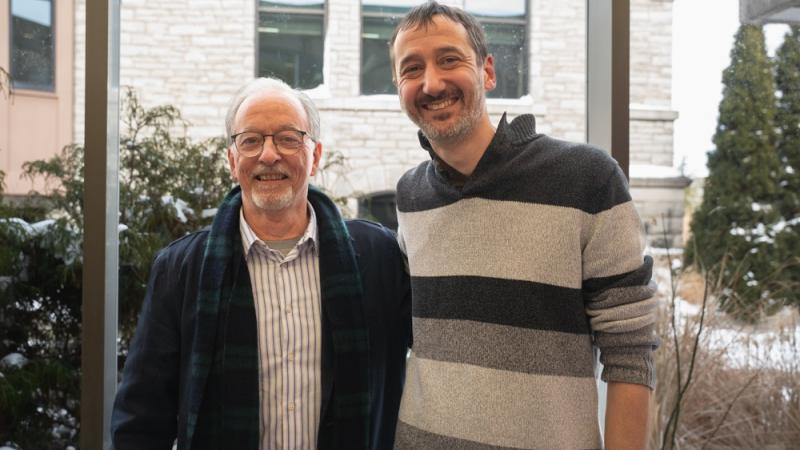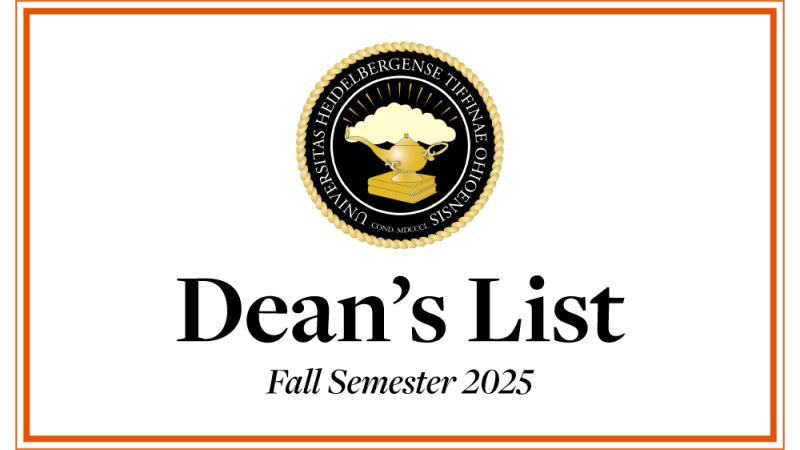Gratitude in Action: How one 1st-year writing project sparked positivity, connection
On a quiet afternoon in Pfleiderer Hall, first-year students in Dr. Barry Devine’s Writing 101 class were asked to do something unusual: pause and look around their new community. Then, consider an important question – Who here has made a difference for you? Their answer became the foundation for the assignment, “Gratitude in Action,” which assigned them to put their gratitude into words.
“Gratitude in Action” is one example of a new approach to writing, according to Barry, Associate Professor of English. He reimagined the course, shifting away from traditional essays and toward active learning, a model where students experience something meaningful and then write from that lived experience.
The inspiration came from close to home. For years, Barry’s wife, Dr. Helena Theixos, assigned gratitude messages in her Business Ethics courses, asking students to publicly thank someone on LinkedIn. Their initial hesitation often transformed into positive interactions.
“I wanted to bring a similar experience to my first-year students,” Barry said. “These are students just beginning to form their academic identities, their college relationships, and their understanding of themselves as writers. Gratitude is a powerful lens for that.”
To help students understand why this mattered, he introduced them to a wide range of research from Forbes Magazine to studies in positive psychology, mental well-being, and college athletics
“It’s easy to assume this kind of research is just fluffy feel-good work,” he said. “But serious scholars across disciplines are studying the positive effects of gratitude in school, in the workplace, and in sports. The data is compelling.”
Students learned that expressing gratitude can improve mental health, productivity, performance, sense of belonging, and overall well-being.
Then they learned the second, more surprising lesson: the sender often benefits as much as the receiver.
Once students understood the research, the real work began.
Barry asked them first to create a list of people on campus they might want to thank – professors, coaches, advisors, RAs, custodial staff, dining hall workers – someone whose actions had truly mattered. They then moved to the Hub Maker Space in Pfleiderer, where they created thank-you messages in whatever form felt most authentic.
For many, this was the hardest part.
“At first, they all felt a little uncomfortable with it,” he said. “And that was intentional. If gratitude isn’t a natural habit, you feel vulnerable putting your appreciation into words.”
He encouraged students to write about that discomfort, to examine it, and to consider what it revealed about their habits of communication.
What happened next surprised even him.
“Nearly everyone wrote that their discomfort melted away once they delivered the message,” he said. “They described these incredibly genuine moments of connection.”
Ripple effect
When students began delivering their gratitude messages across campus, the effects were immediate and in some cases, very personal.
Dr. Bryan Smith, Professor of Chemistry, found his gratitude note slipped under his office door. “They brought a smile to my face and reminded me that what I do in class is meaningful,” he said.
At the time, Bryan’s mother was dealing with severe health issues. “The notes lifted my spirits,” he said. “They re-energized me, and I think my teaching has improved since that time.”
Dr. Salil Khetani, Associate Professor of Marketing, was notified directly by the student who chose to thank him. “I felt acknowledged for the effort I put into my class,” he said. “Especially the effort to encourage and engage students.”
The student connected the message to both Salil’s Principles of Marketing course and Berg Enactus, which he advises. “That meant a lot. Helping students achieve their goals is my constant intention,” he said. “Knowing that I played a role was very meaningful.”
Head Women’s Basketball Coach Erin Eaton received her message at the end of a meeting with freshman nursing major Evie Burke. “It was a surprise and very meaningful to know I’ve made a positive impact,” Erin said. “We believe in the student-athletes we recruit, and it means so much to know that feeling is mutual.”
“Being able to show gratitude can change your perspective on life itself,” Evie said.
For Erin, who was a first-generation college student herself, the moment resonated deeply. Gratitude, she said, is essential for learning, growth, and resilience.
Discovering the joy
Freshman health science major Maggie Milbery, who wrote to Bryan, said the assignment pushed her outside her comfort zone in the best way.
“I typically don’t reach out for help,” she said. “But Dr. Smith explained things in a way that made sense and never made me feel dumb. I wanted him to know that.”
Giving the letter was nerve-wracking but transformative. “I felt so much better after I gave it to him,” she said. “It was like getting my own burst of dopamine.”
Other students echoed that the assignment shifted their perspective. “We take people for granted so often,” Maggie reflected. “Writing messages of gratitude makes you slow down and really think about the people who brighten your day.”
Carrying positivity forward
Ultimately, he hopes his students take something lasting from the experience.
“I was most surprised by their level of excitement,” he said. “Their experiences made them feel good, and that positivity and energy came through strongly in their writing. ... I hope they remember that showing gratitude is important for them and not just the people they thank. It’s important to recognize when someone has helped you. And I hope the positive feelings they experienced become a regular part of their daily lives.”




